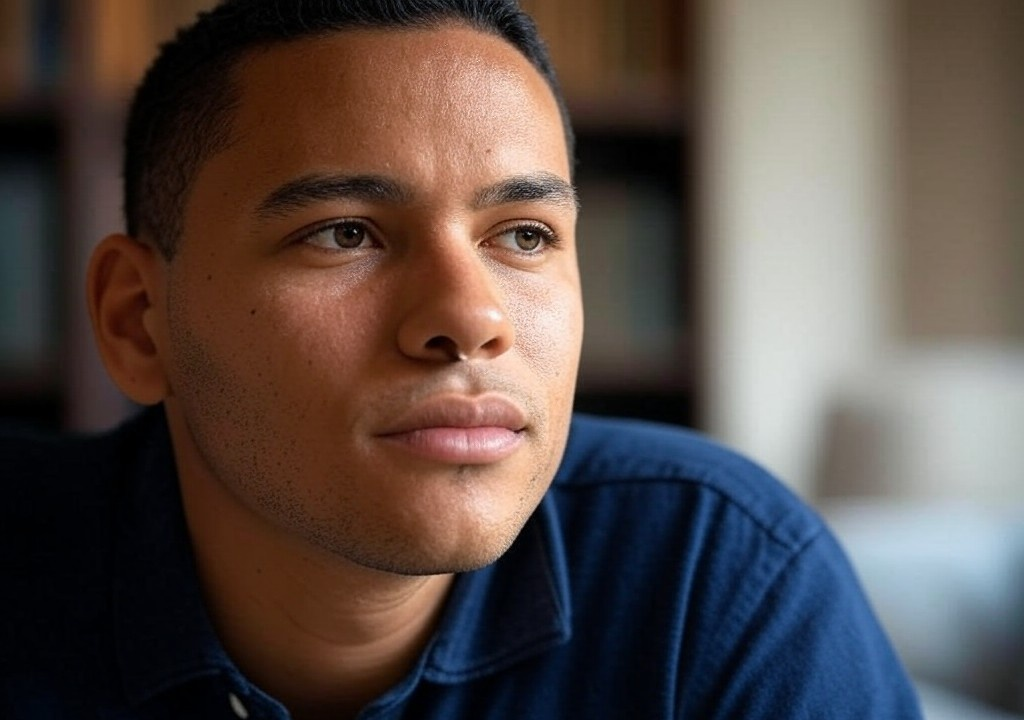I grew up believing that my family was perfect—or as close to perfect as a family could get. It wasn’t just an idea, it was gospel, a cherished myth woven into bedtimes stories, over Sunday dinners, and reinforced with every telenovela we watched together. My abuela called it “la fuerza de la familia,” the unbreakable strength of family. According to her, nothing, not time, distance, or disagreements over who made the best arroz con pollo, could shake our foundation.
The myth went like this: Family doesn’t fail us. Family sticks together. Siempre.
This was beautiful in theory—and for a long time, I bought into it wholesale. I mean, how could I not? My parents and grandparents had survived a dictatorship, crossed borders, and started over with nothing but a suitcase and a smuggled photo of a Cuban beach they wouldn’t see again. Compared to all that, my cousin stealing my Game Boy or my dad interrupting finally successful flirting attempts at the mall paled in comparison. Family was everything, and any break in our connection wasn't just a crack in the foundation—it felt like an offense to our ancestors.
But as I grew older, the cracks in the myth became impossible to ignore.
Family Is Not a Novela Script
Growing up in Miami, my family could’ve starred in its own Telemundo drama. We were loud, dramatic, and endlessly loyal. Birthdays involved thirty people stuffed into a house made for six, everyone yelling over each other, yet somehow still managing to harmonize “Feliz Cumpleaños.” It was chaotic perfection.
But here’s the thing: Even though we were close, there were unspoken rules about what we didn’t talk about. Everyone knew Uncle Lázaro couldn’t hold down a job, but no one dared ask him why. My mom’s younger brother moved to Los Angeles and practically disappeared, except for the Christmas cards that showed up once a year. Everyone acted like he just preferred the West Coast.
When I went to college, I started noticing all the things swept under our familial rug. My sociology professors would call these “buried dynamics,” but I think of them more like sitcom subplots that never got resolved. One Thanksgiving, my older cousin confessed she hadn’t been back to a family dinner in two years because she always felt judged for studying art instead of “something useful.” She said it like it was a joke, but the bitterness was undeniable.
That moment made me wonder: If our family was our unshakable fortress, why did any of us feel exiled inside its walls?
Loyalty Isn’t Blind
In my mid-20s, I started peeling back the layers of the myth I’d clung to for so long. Loyalty is a defining value in Cuban culture (and, let’s face it, most immigrant families), but I realized that being loyal to something doesn’t mean ignoring its flaws.
Too often, we confuse familial loyalty with obligation. Like when I told my mom I wasn’t coming home for Nochebuena because I needed space after a particularly fiery argument with my dad, and she called me a traitor. She meant it affectionately—sort of—but there was still an undertone of, How could you do this to us?
Here’s the truth I’ve come to embrace: Loyalty should be reciprocal. It shouldn’t be trapped in one direction or require suppressing your own needs. You can’t pour the cafecito for everyone else if your own cup is empty, you know?
Sometimes Connection Requires Distance
One of the hardest lessons I’ve learned—and one I keep re-learning—is that love doesn’t always mean proximity. When I moved to Chicago for a fellowship, my weekly Sunday calls home became a lifeline. At first, abuela begged me to come back. She asked me if the cold had numbed my heart (you’ve got to love Latinx dramatics). But over time, something shifted.
That physical distance gave me much-needed space to reflect on the good and bad of our family dynamics. I started setting boundaries—not in a “cut everyone off” kind of way, but in a way that protected my peace. I stopped being the designated event planner for every get-together, even though I’d reluctantly accepted that title for years. When a relative tried to guilt-trip me into paying for something because “you’re the writer; you must do well,” I politely but firmly called out the assumption.
Strangely enough, my relationships with my relatives improved when I got better at communicating these boundaries. Was there tension at first? Definitely. But I’d argue that’s the price of building healthier bridges—ones made of steel beams instead of cobwebbed myths.
The Truth Beneath the Myth
So what became of my family’s perfect myth? Did I let it crumble into ruins? Not exactly. I think it’s still there, but now it’s like the classic cars my abuelo always admired—beautiful, but a little rusty, and in need of restoration.
What I’ve come to understand is this: Family isn’t flawless, and it isn’t meant to be. Real connection isn’t built on the unspoken expectation that everyone will fall into their predetermined roles. It’s built, instead, on honesty and mutual effort.
If I could time travel and chat with younger me—the boy convinced that every family needs to be a fortress—I’d tell him this: It’s okay to question the stories you grew up with. In fact, it’s necessary. Doing so allows you to rewrite them into something more authentic, something you can believe in with open eyes.
Rewrite Your Myth (And Your Relationships)
If you find yourself clinging to a family ideal that doesn’t quite hold up under the microscope, here are some truths I’ve picked up along the way:
-
Boundaries = Love. Setting boundaries doesn’t mean you care any less. If anything, it helps you show up fully without simmering resentment in the background.
-
Confrontation Isn’t Betrayal. Honest conversations are hard, but sweeping things under the rug doesn’t make them go away—it just turns them into tripping hazards later.
-
Distance Can Heal. Whether physical or emotional, some space can actually bring clarity—and sometimes even bring people closer.
-
Myths Can Evolve. Just because you challenge a family story doesn’t mean you’re destroying it. Instead, you’re shaping it into something that feels truer for everyone.
Embrace the Mess
Family isn’t perfect—it’s messy, complicated, and sometimes it feels like a salsa routine where you’re always a step behind. But there’s beauty in that mess, too. Think of it like making ropa vieja: The meat might look shredded and pulled apart, but the end result is rich and flavorful because of everything it’s been through.
I still believe in family, just not in the myth I once held so tightly to. My family isn’t a fortress. It’s more like a group of travelers navigating this journey together. We may lose our way or veer off course, but as long as we’re willing to recalibrate, there will always be a way back—and isn’t that even better than flawless?




















